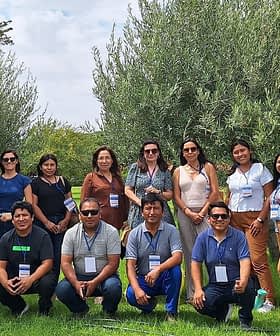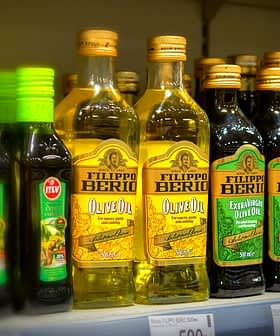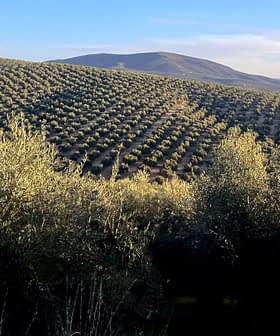Olive Flies in Spain Are Immune to Common Pesticide, Study Finds
Roughly 80 percent of olive fruit fly populations on the mainland have genes that confer resistance to one of the most popular pesticides.
Research from the Complutense University of Madrid found that over 80% of olive fruit fly populations in Spain have developed genetic resistance to organophosphate pesticides, regardless of the type of olive grove they are found in. The study suggests that efforts should focus on finding alternative methods to reduce the use of chemicals for controlling olive fruit flies, as overuse of pesticides has led to mutations in the ace gene that decrease the efficacy of these pesticides.
Olive fruit fly populations in Spain have developed genetic resistance to a common type of pesticide used to control and eliminate them, according to newly published research from the Complutense University of Madrid.
The study, which was published in the academic journal Insects, found that more than 80 percent of olive fruit fly populations on the Spanish mainland have genes that confer a high level of resistance to the commonly-used organophosphate pesticides.
See Also:Study on Fruit Fly Control Wins Research AwardThe levels of resistance to organophosphate pesticides were found to be consistent in fruit fly populations regardless of the type of olive grove (i.e. organic, super-high-density, traditional) in which they were found.
Normally, organophosphate pesticides work by inhibiting the acetylcholinesterase protein, which breaks down the chemical acetylcholine, a neurotransmitter responsible for muscle contraction.
“Organophosphate insecticides irreversibly block acetylcholinesterase, therefore, acetylcholine is not degraded, which causes prolonged paralysis of the insect and with it, its death,” Esther Lantero, a researcher at the university’s department of genetics, physiology and microbiology said.
However, the researchers said that the overuse of these pesticides on olive trees across the country have caused three different types of mutations to the ace gene. Each of these mutations has an adverse effect on the way in which the pesticides interacted with the acetylcholinesterase protein and decreased their efficacy.
“It is essential to find effective alternatives that significantly reduce the density of the olive fly populations,” Lantero said. “For this reason, efforts should focus on the search for biological, cultural, biotechnological or physical methods that reduce the use of chemicals, concentrating the approach based on biological control.”
Along with testing olive fruit fly populations from 12 different Spanish regions, the researchers also tested populations from 12 other regions spread across five countries in the Mediterranean.
They found high degrees of resistance to organophosphate pesticides from selected populations in Greece and Italy (at least 95 percent), while populations from Israel and Portugal had significantly lower levels of resistance (closer to 50 percent).
Meanwhile, populations from Tunisia and Spain’s Balearic Islands had nearly negligible levels of resistance.









